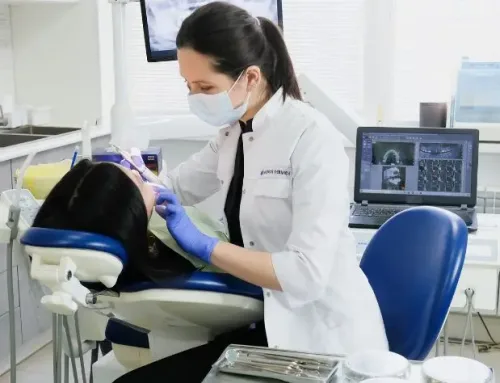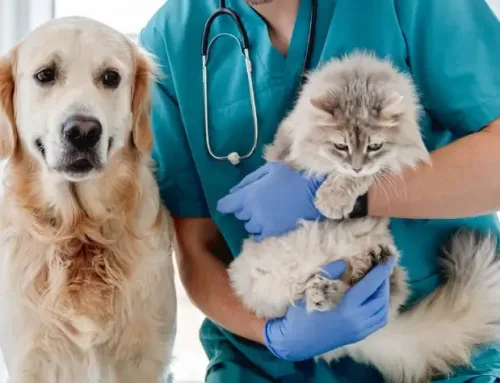Careers with a Public Health Degree: From Epidemiology to Health Education

What can you do with a degree in public health? The answer stretches far beyond traditional healthcare roles. Public health professionals prevent illness, promote wellness, and create healthier environments where communities can thrive. Their work touches everything from clean water initiatives to health education, always aiming to improve life on a broad scale.
A degree in public health opens opportunities across industries and settings. Some graduates lead global disease response, while others design community wellness programs that make daily life healthier and safer. Whether your passion lies in science, education, or policy, this path equips you to make a real difference. The possibilities are vast, and exploring them can spark exciting ideas about your own future.
Why Pursue Public Health?
Public health appeals to those who want their work to mean something—and to reach far beyond individual care. It’s a field where scientific thinking meets human outcomes, and where professional growth pairs with long-term relevance.
A Career That Improves Lives at Scale
Public health centers on systems, strategy, and solutions. Professionals in this field create structures that prevent illness before it spreads. Their work reduces chronic disease rates, expands access in underserved communities, and reshapes outcomes for entire populations.
This kind of impact draws people who want to contribute meaningfully, while also building careers rooted in evidence, advocacy, and action.
A Versatile, Multi-Disciplinary Field
- Work in public or private sectors, from community nonprofits to federal agencies
- Career paths in epidemiology, biostatistics, environmental health, health education, and policy
- Collaborate across disciplines: social sciences, medicine, law, and technology
- Contribute to global efforts or shape hyper-local change
The training opens doors across sectors and industries.
Built for Growth and Advancement
Public health offers a clear upward trajectory. Many professionals start with bachelor’s-level roles and later pursue advanced degrees like a Master of Public Health (MPH), Doctor of Public Health (DrPH), or related certifications. These pathways lead to leadership roles in research, administration, and policy.
Education in public health builds both practical skills and academic depth, which positions professionals for long-term mobility and influence.
A Career That Keeps Its Relevance
Public health professionals are central to some of the most urgent challenges of our time: climate change, global pandemics, mental health, food security, and the effects of systemic inequality. These are complex, interlocking issues that require people who can think both scientifically and socially.
The need is immediate, and the relevance is long-lasting. That’s why trained professionals are always in demand.
High Job Satisfaction and Sense of Purpose
Meaningful work consistently ranks among the top reasons public health professionals stay in the field. Whether implementing school-based nutrition programs or designing health policies that reach millions, the connection between effort and outcome is direct—and deeply rewarding.
A Career Path with Staying Power
The demand for public health professionals is accelerating—and shows no signs of slowing. From data analysts to educators, the field is hiring across the board, offering meaningful careers with measurable impact.
Public Health Is One of the Fastest-Growing Sectors in Healthcare
Public health sits at the intersection of healthcare, science, and social systems—and the numbers show it’s expanding rapidly. Federal projections confirm what the industry already feels: the need for public health expertise is growing across local, national, and global levels.
This surge isn’t limited to one role or specialty. It includes epidemiologists, health educators, data scientists, and public policy experts—all working toward smarter, more equitable systems of care. The momentum is real, and it’s opening doors.
What the Data Says: Job Outlook and Openings
- 1.9 million healthcare job openings per year projected between 2023 and 2033 (Bureau of Labor Statistics)
- 19% growth projected for epidemiology roles alone
- Strong growth in related areas like health education, policy development, and health services administration
- High demand in both public and private sectors, including government agencies, hospitals, NGOs, and research institutions
These figures point to a workforce that’s scaling up quickly—and consistently.
Why Public Health Professionals Are in Demand
The COVID-19 pandemic redefined how societies understand and manage health. In the aftermath, public health has gained new visibility and urgency. But the drivers go beyond emergency response.
Chronic illnesses continue to rise. Health equity has become a national focus. Environmental threats, aging populations, and the mental health crisis all require specialized, systemic solutions. Public health professionals are equipped to lead those efforts—and that makes them essential.
Step-by-Step: Building a Career in Public Health
A career in public health starts with the right foundation—then grows with experience, education, and purpose. Whether you’re entering college or pivoting mid-career, here’s how to build a future that’s both strategic and impactful.
Education First: Start with a Strong Academic Foundation
Most public health careers begin with a bachelor’s degree. Health Sciences, Public Health, or a closely related major provides the entry point—but content matters just as much as the credential. The right program equips you with the core knowledge needed to address population-level challenges and lead meaningful health initiatives.
A well-rounded undergraduate curriculum should cover:
- Epidemiology the study of disease patterns, essential for data-driven health work
- Community and Environmental Health understanding how context shapes outcomes
- Policy, Ethics, and Data Interpretation where public health meets systems, legislation, and accountability
- Health Promotion and Education tools for behavior change and public engagement
Programs that emphasize critical thinking, communication, and hands-on learning will prepare you for both graduate school and direct entry into the workforce. If you’re planning long-term, choose a program with the flexibility to explore specific interests early on—whether global health, environmental justice, or health informatics.
Experience Matters: Build While You Learn
Academic knowledge is only part of the equation. Employers and graduate programs look for practical experience—proof that you understand how theory translates into real-world impact. Internships, volunteer roles, and project-based learning all help build that bridge.
Look for opportunities to contribute to:
- Local health departments managing outreach, surveys, or screenings
- Nonprofits and community clinics supporting underserved populations
- Research labs analyzing data or assisting with studies
- Global health initiatives through remote or short-term fieldwork
Getting involved early gives you a competitive edge, sharpens your focus, and helps build a professional network. It also makes your coursework more relevant—there’s nothing like applying classroom insights to real community needs.
Certifications Can Boost Your Career
As you progress, certifications can expand your professional range and demonstrate your commitment. Two respected credentials stand out:
- CHES® (Certified Health Education Specialist)
Designed for those pursuing health education roles, this credential verifies your ability to plan, implement, and assess public health programs. - CPH (Certified in Public Health)
Widely recognized by graduate schools and employers, the CPH affirms your grasp of foundational public health competencies. It’s especially useful for leadership roles or as a stepping stone to an MPH.
While not required for every entry-level job, these certifications can enhance your resume and broaden your options—particularly in competitive markets.
The Long View: Strategy, Growth, and Adaptability
Careers in public health tend to be long-term and purpose-driven. While the early years focus on gaining technical skills and real-world perspective, the field is built for continuous growth. Many professionals return for graduate training or move into specialized tracks such as health informatics, policy analysis, or environmental risk management.
Success often comes down to curiosity and adaptability—qualities that matter as much as credentials. Public health is always evolving. New technologies, changing demographics, and global challenges are reshaping the landscape constantly. Professionals who are ready to keep learning, collaborating, and leading will always be needed.
SCU’s BSHS Program: Flexible. Focused. Forward-Looking.
At Southern California University of Health Sciences (SCU), we’ve designed our Bachelor of Science in Health Sciences (BSHS) program to meet today’s realities—and tomorrow’s opportunities.
Flexible, Transfer-Friendly, and Built for Your Goals
We understand that life doesn’t pause for education. Our BSHS program is a bachelor’s completion degree built for students who already hold at least 48 transferable college credits. Whether you’re shifting careers or finishing what you started, we help you move forward efficiently.
Our format is fully online and asynchronous, which means you can take classes on your schedule, full-time or part-time. Most students finish the program in under two years while taking just two courses at a time. The pacing is intentional—it’s designed to optimize learning while helping you stay focused and energized throughout the experience.
This isn’t a one-size-fits-all curriculum. It’s a customizable path toward your version of success.
Public Health-Aligned Concentrations
Our program goes beyond general health sciences to give you options that align directly with public health practice. Choose a concentration that reflects your interest and career goals:
- Health Education Prepares you for the CHES® exam, qualifying you as a Certified Health Education Specialist
- Health Promotion Teaches wellness models, behavior change frameworks, and community health strategies
Each track builds real-world skills that apply directly to public health, whether you’re stepping into an entry-level role or preparing for advanced graduate study.
Interested in more? Explore more concentrations here!
Accelerated Pathways to Graduate School
We’ve created unique Accelerated Pathway Tracks that let you earn graduate-level credits during your BSHS coursework. These courses count toward future SCU graduate programs—without the graduate-level price tag.
You can get a head start on degrees in:
- Human Genetics & Genomics
- Integrative and Functional Medicine
- Occupational Therapy
- Physician Assistant
- Chiropractic
This strategic structure saves time and tuition while helping you transition smoothly into specialized or advanced roles in health sciences and public health.
Career-Ready, Mission-Aligned
Everything we teach is anchored in real-world relevance. Our curriculum emphasizes disease prevention, health equity, systems thinking, and evidence-based practice—core pillars of public health education. You’ll graduate with a broad skill set and a focused sense of purpose, prepared to contribute meaningfully in public, private, or nonprofit sectors.
We also offer fixed tuition rates, financial aid options, and scholarships to make your investment in education more predictable and accessible.
Whether you plan to enter the workforce right after graduation or pursue a Master of Public Health or another advanced credential, our BSHS program is structured to help you build momentum—and keep it.
Shape What’s Next in Health—Start at SCU
What can you do with a degree in public health? You can influence systems, shape healthier communities, and build a career with lasting impact. With SCU’s transfer-friendly, online BSHS program, you don’t just meet the moment—you prepare for long-term growth, whether you’re heading straight into the field or planning for graduate study.
Our curriculum, flexible format, and public health-aligned concentrations are designed to move you forward with clarity and confidence. If you’re ready to do meaningful work and take the next step toward a purpose-driven career, explore our admission requirements and apply today. We’re here to help you get started—and thrive.
FAQs
What can you do with a degree in public health?
You can work in epidemiology, community health, health education, policy development, or even global health initiatives. It’s a versatile degree with opportunities across government, nonprofits, research, and healthcare.
Is a public health degree worth it if I don’t want to be a doctor?
Absolutely. Public health is about population-level impact—through education, research, and policy—not individual treatment. Many careers don’t require a clinical background.
How long does it take to start working in public health?
With a bachelor’s degree, you can qualify for many entry-level roles right after graduation. Some positions may also accept internships or community experience as a starting point.
What makes your BSHS program a good fit for public health students?
We offer public health-focused concentrations, a flexible online format, and accelerated graduate pathways—all designed to build skills that translate directly into the workforce or advanced study. Explore our program here.
How many credits can I transfer into the BSHS program?
You can transfer in 48 or more credits. We’re transfer-friendly by design, helping you finish your degree faster and with less stress.
Related Posts




